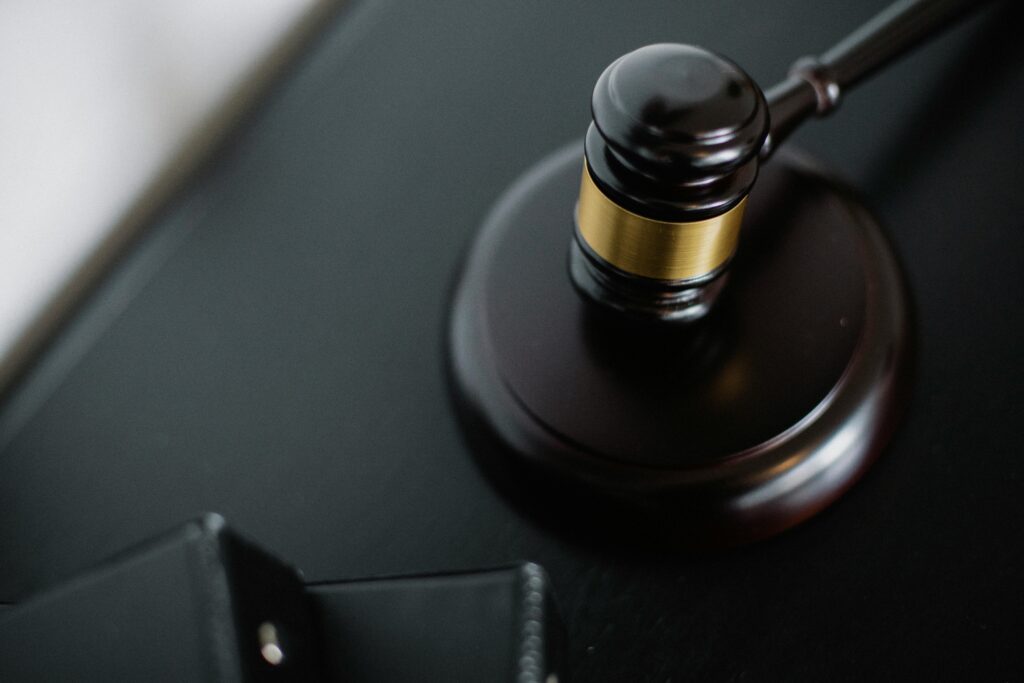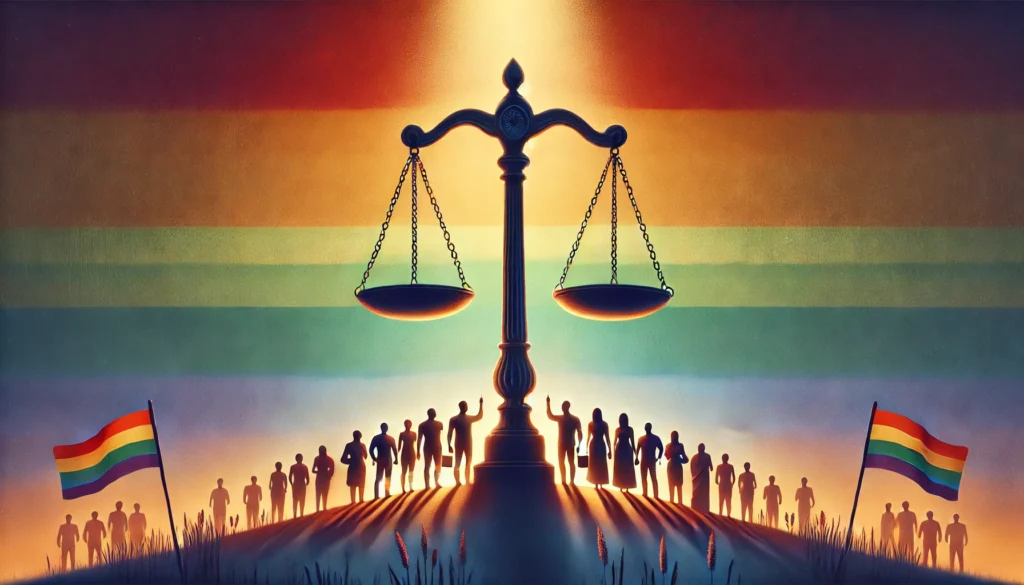Published On: 2nd September, 2024
Case Title: ADM Jabalpur v. Shivkant Shukla
Citation: 1976 (2) SCC 521; AIR 1976 SC 1207
Court: Supreme Court of India
Justices: A.N.Ray, Hans Raj Khanna, Mirza Hamedullah Beg, Y.V.Chandrachud, P.N.Bhagwati
Parties:
Petitioner: Additional District Magistrate, Jabalpur
Respondents: S..S..Shukla and others
The ADM Jabalpur v Shivkant Shukla case, also known as the Habeas Corpus case, is a pivotal moment in the history of Indian jurisprudence. April 28, 1976, is considered the darkest day for the Indian judiciary as it was the day the verdict was announced in the infamous ADM Jabalpur v Shivkant Shukla case. The case is also known as the “Habeas Corpus case”. It concerned the period when Indira Gandhi’s government declared Emergency and issued Presidential Decrees when the court declared her election as Prime Minister to be illegal. The case arose out of a controversy over whether an individual had the right to approach the Supreme Court in cases where his fundamental rights, particularly Article 21 on the right to life and liberty and Article 14 on the right to equality, were violated. The final outcome of the judgment was indeed harsh in that an individual’s right to approach the Supreme Court under Article 226 for habeas corpus or any other order challenging the lawfulness of an arrest warrant at the time of the State Proclamation was recognized. The Emergency remained suspended. Moreover, the person could not go to the Supreme Court to seek relief or justice. This was the main reason for considering ADM Jabalpur as the darkest stain in the history of the Supreme Court. The case was decided by the Supreme Court of India on 28 April 1976 and dealt with rights during the Emergency declared by the Indira Gandhi government under Article 352 of the Indian Constitution.[1]
Facts of the case:
On 25th June 1975, the President of India, within the scope of the powers conferred by Article 352(1) of the Constitution, declared a state of emergency as there was a threat to the security of the country. There was a threat of internal disturbance. On 27th June 1975, within the scope of the powers conferred by Article 359 of the Constitution of India, it was declared that every person, including a foreigner, shall have the right to approach a court of law for the purposes given by Articles 14, 21 and 22 of the Constitution. Turning India around. During the state of emergency imposed by Article 352 of the Constitution of India, the rights conferred by the Constitution of India and all proceedings pending in a court of law for enforcement of these rights are excluded.
On 8 January 1976, the President of India exercised the powers conferred by Article 352 of the Constitution and declared the right of every person to approach a court of law for enforcement of the rights conferred by Article 19 of the Constitution of India. Further, all proceedings pending in the courts to enforce the above rights will remain suspended during the State of Emergency. This has led to several illegal arrests, including the incarceration of some of our most prominent political leaders, such as Jayaprakash Narayan, Morarji Desai, Atal Bihari Vajpayee, and L.K. John. Advani was arrested without charge or trial.
Issue:
Can a writ petition be filed before the Supreme Court under Article 226 of the Constitution to enforce a fundamental right during a national emergency?
Arguments of the Parties:
The applicants contend that the Advisory Committee is of the view that there is no sufficient reason for illegal detention and therefore illegal detention will continue if the State does not release the prisoners. Article 22 is constitutional. This is also true in cases where Article 22 is itself a fundamental right even if there is habeas corpus. The right to appeal to a court to enforce the right under Article 19 has been suspended by the President of India by an order under Article 359(1) of the Constitution.
The learned counsel for the defendants argued that the limited scope of Article 359(1) serves to remove any restriction on the power of the legislature and while declaring a national emergency, the legislature is at liberty to prevent the infringement of established fundamental rights. According to a Presidential Order, people are subject to the law. The plaintiffs further argued that there is a law regulating pretrial detention, namely the Maintenance of Internal Security Act, of 1971. It was argued that arrest warrants approved by the Executive must be subject to the conditions laid down in the Act. The defendants also pointed out that Article 21 of the Constitution of India is not the sole guardian of the right to life and personal liberty. Finally, it was submitted that the Preamble of our Constitution speaks of a sovereign democratic republic and therefore no senior official subordinate to the legislature shall act to the detriment of the people except to the extent permitted by law.
Ruling: (Majority opinion by Roy C.J.)
- a) Given the Presidential Order, no person has the power to apply for a writ of habeas corpus under Article 226 or any other order or decree violating the rights of an individual. A prisoner cannot be compelled to exercise his liberty.
- b) Article 21 is the only repository of the right to life and personal liberty against the State.
- c) No court has the power to deal with the question of contempt of arrest.
- d) There can be no constitutional state other than one rooted in the Constitution. There can be no constitutional state contrary to the principles of the rule of law enshrined in the Constitution, whether before or after the adoption of the Constitution and in times of emergency the rule of law cannot rely on the provisions of the Constitution.
Section 16 (A)(g) of MISA is valid. (Maintenance of Internal Security Act).
Minority opinion:
Justice Khanna delivered a very strong dissenting judgment stating that preventive detention without trial is anathema to all lovers of personal liberty. To make his case he relied on Magna Carta, legal philosopher Sir Edward Coke, and several important US Supreme Court decisions for which he represented.
- a) Article 21 cannot be considered the sole repository of the right to life and personal liberty.
- b) Even without Article 21, the state has no right to deprive a person of his life or personal liberty without the authority of law. Every civilized society has important postulates and fundamental assumptions about the rule of law.
- c) The power of the Supreme Court to issue writs of habeas corpus is an integral part of the Constitution. The Constitution does not give any power to suspend this power of the Supreme Court during a state of emergency.
Impact of the case
Limitation of judicial power: The majority decision effectively limited the judicial power. Unprecedented powers were given to the executive branch during the state of emergency. This led to widespread abuse of power and human rights violations.
Erosion of civil liberties: The judgment led to an erosion of civil liberties. Thousands of political opponents, activists, and dissidents were arrested without legal recourse.
Criticism and legacy: The judgment was widely criticized for undermining the rule of law and constitutional principles. Justice Khanna’s dissent is praised as upholding judicial independence and the sanctity of fundamental rights.
Post-Emergency reforms: The case highlighted the need for constitutional and legal reforms to prevent future abuses of power. After the Emergency, the 44th Amendment Act was enacted in 1978. This ensured that Article 21 would not be suspended even during an emergency. This strengthened the protection of fundamental rights.
Strengthening Judicial Review: This case highlighted the importance of judicial review as a safeguard against executive excesses. Subsequent judgments reaffirmed the role of the judiciary. This role is to protect fundamental rights. This is very important even in extraordinary circumstances.
The judgment day of ADM Jabalpur v. Shivkant Shukla delivered on April 28 1976 is often referred to as “black day” for the Indian Constitution. This is due to the following reasons
- Suspension of Fundamental Rights
The Supreme Court’s majority judgment declared that during a state of emergency enforcement of fundamental rights as per Articles 14 (Right to Equality), 19 (Freedoms) and 21 (Right to Life and Personal Liberty) could be suspended. This judgment effectively granted the government authority to detain individuals without judicial review. Citizens thus became powerless to seek legal redress against unlawful detention.
- Judicial Abdication
The judgment was seen as an abdication of the judiciary’s role as the guardian of fundamental rights. It was also the protector of individual liberties. The Supreme Court ruled that habeas corpus petitions could not be entertained during the emergency. They essentially endorsed the executive’s unchecked authority. This undermined the principle of checks and balances which is foundational to a constitutional democracy.
- Human Rights Violations
The ruling led to severe human rights violations during the Emergency period (1975-1977). Political opponents were detained without trial. Activists and journalists suffered the same fate. Detained citizens were subjected to torture. Legal recourse was denied. The judgment provided legal cover for these abuses exacerbating the situation and contributing to widespread fear and repression.
Conclusion:
ADM Jabalpur v. Shivkant Shukla remains a pivotal case in Indian legal history. It serves as a cautionary tale about the potential dangers of unchecked executive power and the crucial role of the judiciary in upholding constitutional principles. While the majority judgment is often viewed negatively, Justice Khanna’s dissenting opinion continues to inspire and reinforce the judicial duty to uphold fundamental rights. The legacy of this case has ultimately strengthened constitutional protections and helped ensure that the darkest chapters of Indian democracy are not repeated.
Reference(s):
[1] Shivangi Khattar, ‘Case Summary: ADM Jabalpur v. Shivkant Shukla’ (LawLex.Org, 6 August 2020) <https://lawlex.org/lex-pedia/case-summary-adm-jabalpur-v-shivkant-shukla/25186> accessed 12 July 2024.


